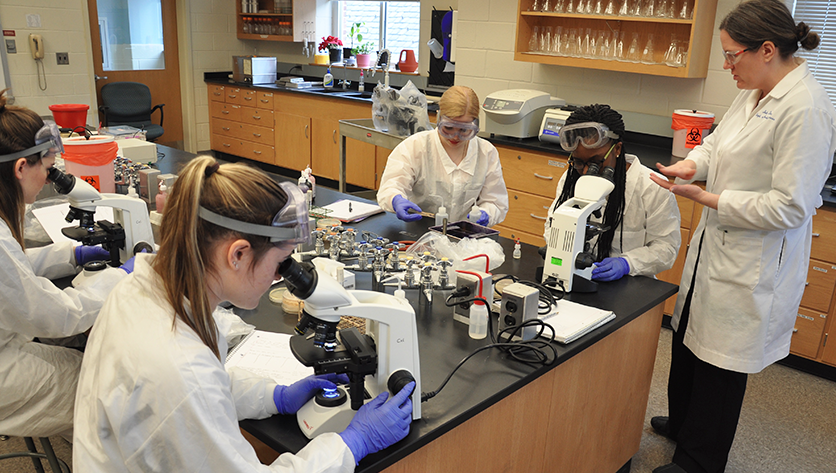NDMU Becomes First Maryland University to Join the Small World Initiative (SWI)

As a member of the SWI, NDMU acts as an advocate for long-term involvement in the sciences, allowing upper-level biology students to continue working on antibiotic-producing bacteria identified by undergraduates in the 200-level introductory microbiology classes.
By joining the SWI, the University is addressing a worldwide health threat—the rise of antibiotic resistant infections. It’s providing NDMU students the hands-on research opportunities needed for future professional careers in health care.
Assistant professor of biology, Jennifer Kerr, Ph.D., heads up the program. She is one of 22 new educators who will to lead their university’s programs around the globe. “There is a growing need to increase and prolong the involvement of women in science,” says Dr. Kerr. “We have a unique opportunity to influence the future NDMU student population to continue to work in science research either directly or indirectly.”
Launched at Yale in 2012, SWI is an innovative program that encourages students to pursue careers in science while addressing a worldwide health threat – the diminishing supply of effective antibiotics. Through a series of student-driven experiments, students collect soil samples, isolate diverse bacteria, test their bacteria against clinically-relevant microorganisms, and characterize those showing inhibitory activity.
This research is particularly relevant since over two thirds of antibiotics originate from soil bacteria or fungi. SWI’s approach provides a unique platform to crowdsource medical breakthroughs by tapping into the intellectual power of many people concurrently addressing a global challenge and advances promising candidates into the drug development pipeline.
Notre Dame students have already isolated several microorganisms that are capable of producing antibiotics. Research will now shift to characterizing and identifying the antibiotic-producing bacteria.




